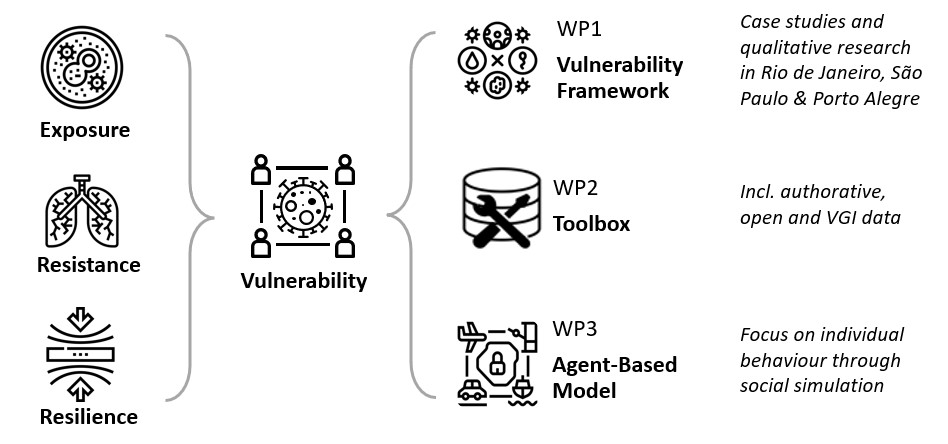COVID-19 in Brazil: Learning from an extreme case for the future

COVID-19 has caused a major crisis in Brazil: the health system was overwhelmed, the political system showed fragmented and conflicting responses, and poverty has become direr. The result is that the first year of the pandemic in Brazil has become one of the world’s gravest examples of COVID-19’s impact on health, politics, and society. An international research team under the aegis of geoscientist Dr Juan Miguel Rodriguez-Lopez and doctoral researcher Alexandre Pereira Santos is collecting diverse behavioural data in 3 Brazilian cities to better depict COVID-19 vulnerabilities in the health, political, and social sectors.
Their goal is to combine anonymous behavioural data—for example, from social networks—and official data, such as infection rates, in order to take spatial and social behavioural patterns into account when making decisions. Looking at individual behaviour, social interactions, and spatial inequalities together significantly improve resilience against the pandemic. Based on these integrated data, a model will be created for more safely handling the current pandemic and future pandemics.
In the links to the right, you can learn more about each of our Work Packages. WP1 sets out the analytical framework used throughout the project, WP2 investigates the use of data by different decision makers to build an informational toolbox, and WP3 explores future scenarios with agent-based models. You can also explore the extensive Corona-Portfolio from the University of Hamburg with different projects on themes associated with the pandemic.
